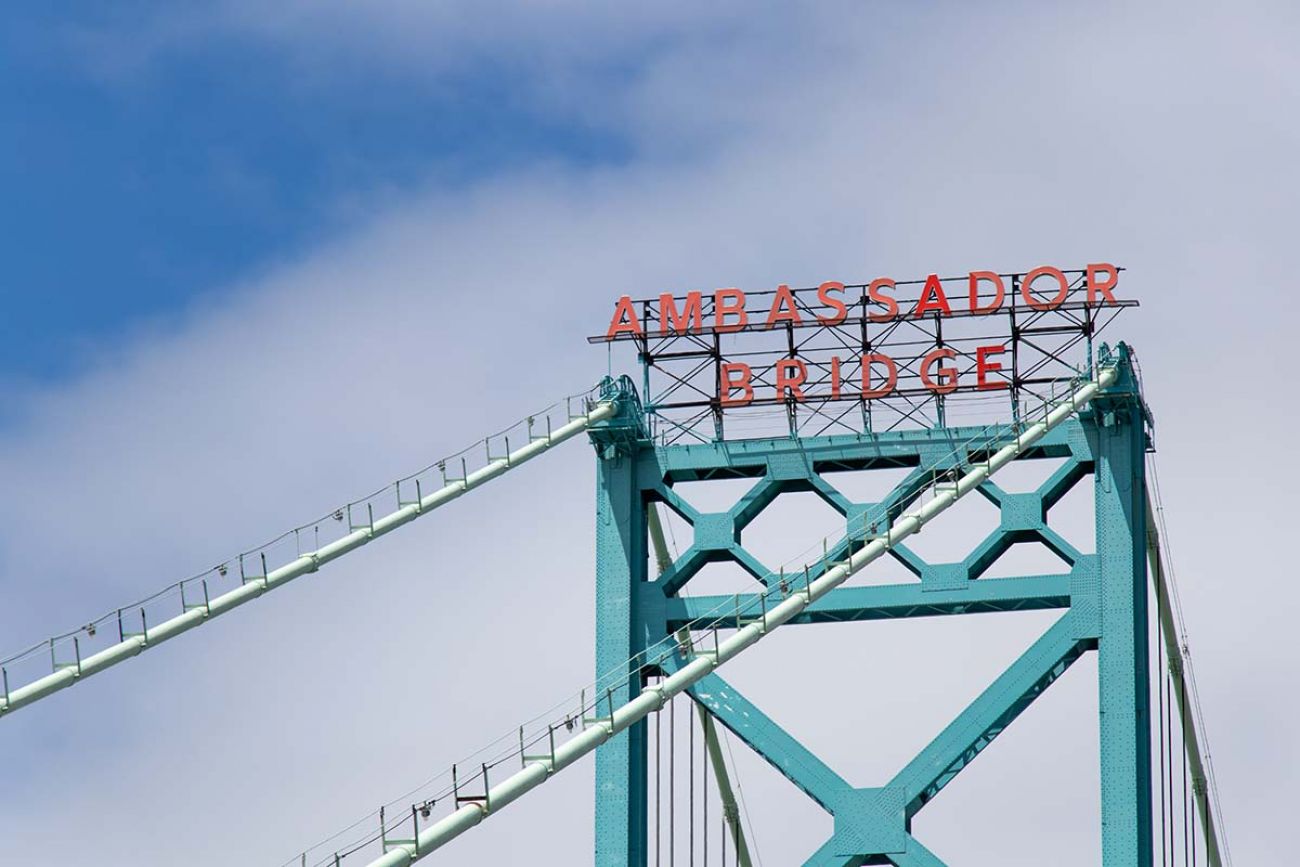Ambassador Bridge reopens after Canadian border crossing protests

Michigan business leaders expect easing of supply chain logjams after the busiest U.S.-Canada border crossing reopened late Sunday following protests that closed the Ambassador Bridge for nearly a week.
Police in Windsor, Ontario, began clearing the span linking Detroit to Canada on Saturday after an Ontario judge ruled Friday that authorities could take measures to assure its opening. Police said that more than two dozen people were arrested, seven vehicles towed and five seized near the bridge.
Related:
- Canadian judge OKs police removal of truckers blocking Ambassador Bridge
- Michigan officials call for trucker protest to end 'immediately and safely'
- Truckers protesting vaccine mandate block two Michigan bridges to Canada
Gov. Gretchen Whitmer ─ who for days had been urging Canadian officials to end the standoff ─ said on Monday during a Detroit Regional Chamber of Commerce appearance that the debacle was an important reminder of how crucial a second international crossing from Detroit to Windsor is to keeping trade open.
The Gordie Howe International Bridge is under construction south of the Ambassador Bridge and should open by the end of 2024.
“This was a lesson to the world and, frankly, I think some in (Washington,) DC didn’t appreciate on that first day how serious the consequences were going to be for the nation, but our state in particular,” Whitmer said.
“It was crucial to get the word out to call for accountability, but I remain concerned,” Whitmer said. “ We have seen this illegal activity bring our economy to the brink…. We can’t let events like these go unchallenged.”
The private owner of the bridge, the Detroit International Bridge Company, announced its opening at 11 p.m. Sunday, stating it is “now fully open allowing the free flow of commerce between the Canada and US economies once again.”
Unreal scenes in Canada as heavily armed forces move in to make arrests and tow all vehicles from ambassador bridge. pic.twitter.com/zwI6Oa2ufR
— Wittgenstein (@backtolife_2022) February 13, 2022
The span had been closed since Feb. 7 by Canadian so-called “Freedom Convoy” truckers who parked their rigs on the bridge, in protest of a U.S.-Canada mandate that requires truckers to be vaccinated for COVID-19 to enter either country.
The bridge normally carries 8,000 trucks and more than $323 million in goods a day, accounting for nearly a third of the two-way annual trade between Canada and the U.S., estimated at more than $600 billion.
The closure spawned a cascading series of auto industry slowdowns due to parts shortages, as General Motors shut down several shifts at its vehicle production plant near Lansing. Ford Motor Co. and Toyota Motor Corp. halted some operations in Canada stemming from the shutdown, while Honda planned to stop production on assembly line at its plant in Alliston, Ontario.
According to estimates by Anderson Economic Group, an East Lansing consultant, the bridge logjam cost $51 million in lost direct automotive wages alone in Michigan its first week, a number it said “would climb at an accelerating pace” the longer the standoff continued.
Even before the bridge shutdown, Michigan automakers were struggling with global supply chain snags, a shortage of computer chips and staffing gaps.
As the impasse continued last week, representatives of Michigan agriculture also warned of its impact on that sector as well.
“Canada is Michigan’s No. 1 customer across multiple segments of the economy,” said Chuck Lippstreu, president of the Michigan Agri-Business Association, which represents businesses that support farmers.
“That partnership is incredibly important for Michigan,” he told Bridge Michigan, “and we don’t want to see trade … interrupted.”
The bridge shutdown spilled over to a second Michigan border crossing, as truckers were rerouted from the Detroit-to-Windsor crossing to Port Huron’s Blue Water Bridge to Sarnia, Ontario, causing a second wave of massive traffic backups.
Business Watch
Covering the intersection of business and policy, and informing Michigan employers and workers on the long road back from coronavirus.
- About Business Watch
- Subscribe
- Share tips and questions with Bridge Business Editor Paula Gardner
Thanks to our Business Watch sponsors.
Support Bridge's nonprofit civic journalism. Donate today.
See what new members are saying about why they donated to Bridge Michigan:
- “In order for this information to be accurate and unbiased it must be underwritten by its readers, not by special interests.” - Larry S.
- “Not many other media sources report on the topics Bridge does.” - Susan B.
- “Your journalism is outstanding and rare these days.” - Mark S.
If you want to ensure the future of nonpartisan, nonprofit Michigan journalism, please become a member today. You, too, will be asked why you donated and maybe we'll feature your quote next time!




